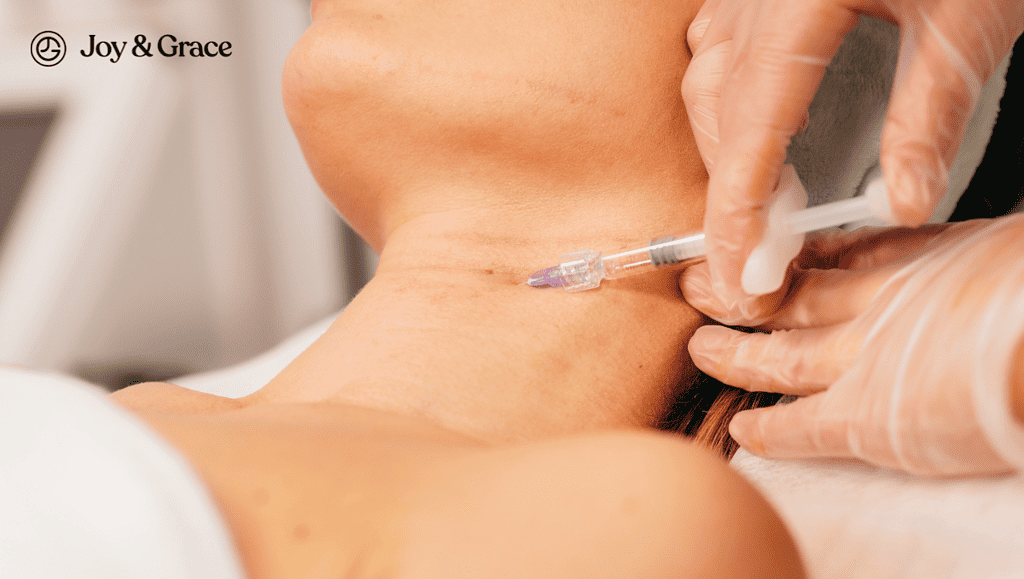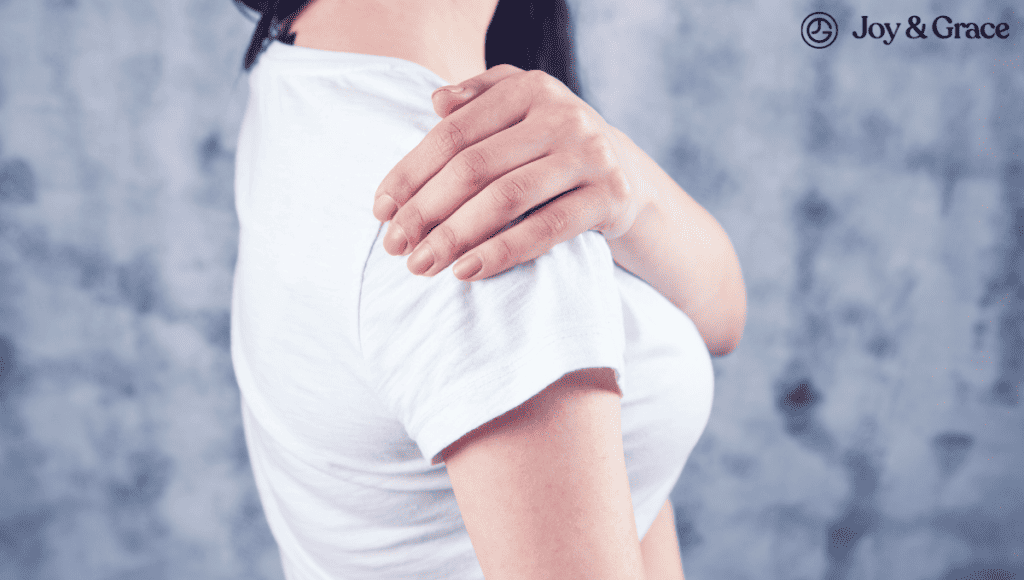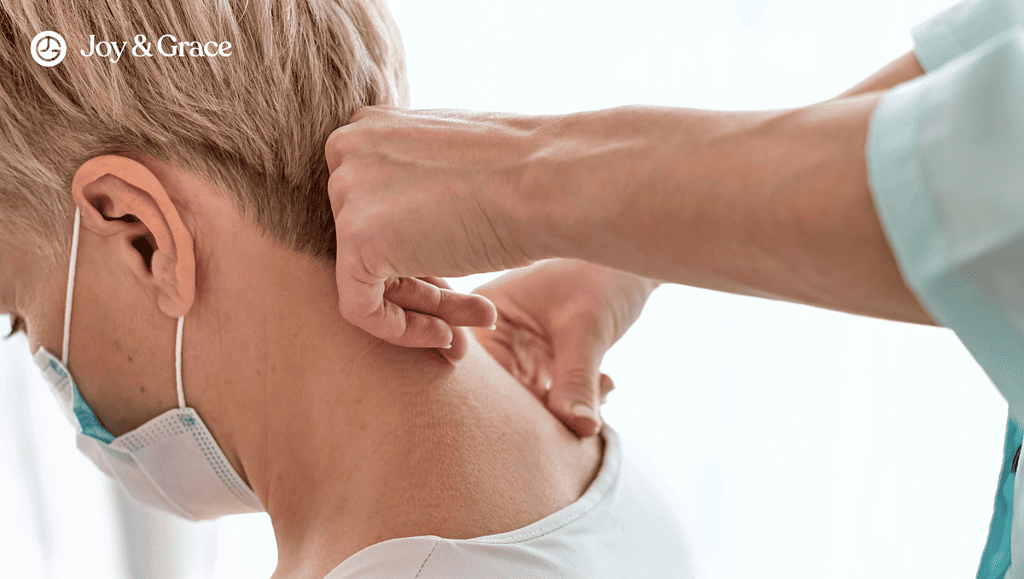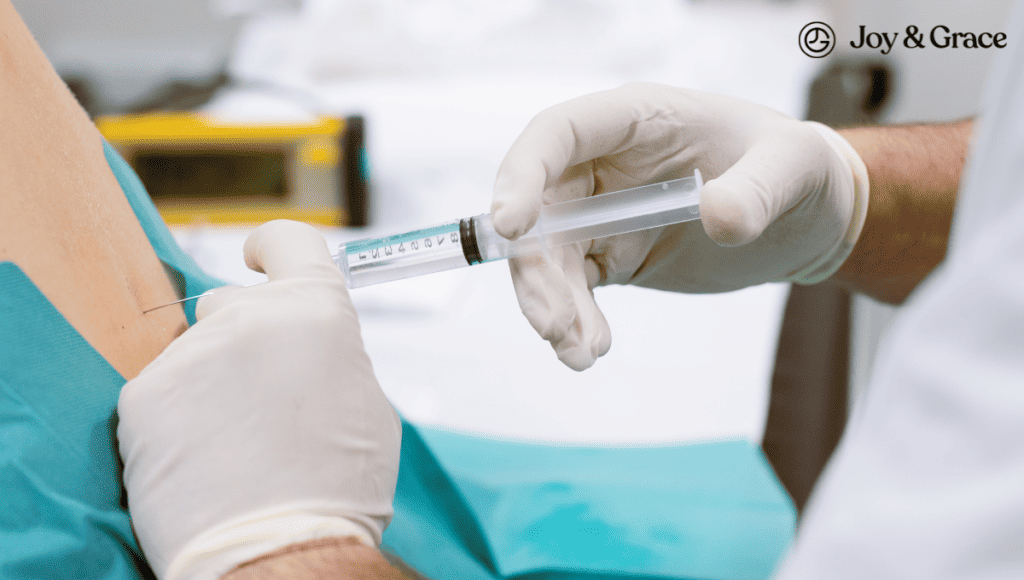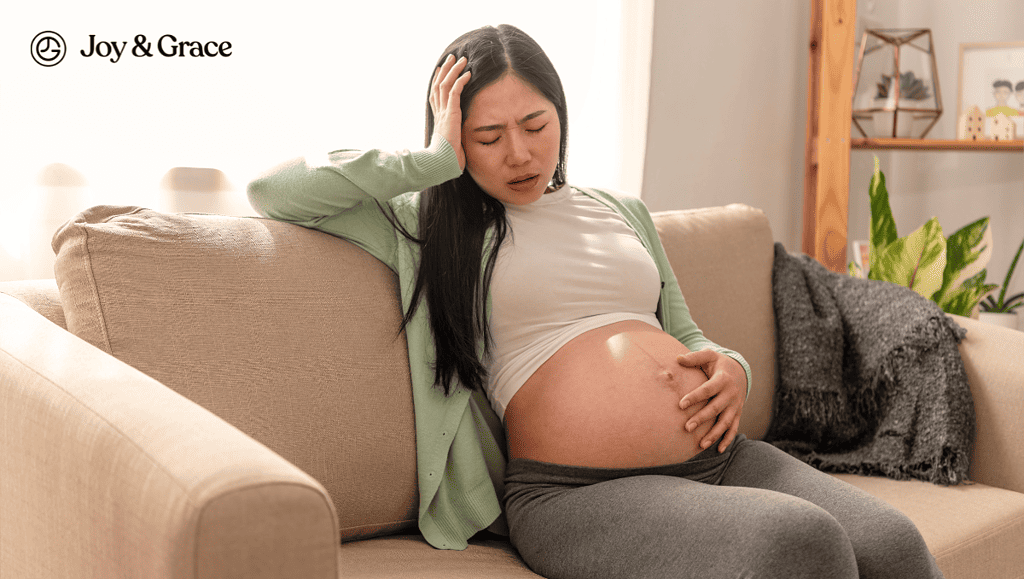If you're reading this blog post, chances are you or someone you know has had a hysterectomy. This surgical procedure involves removing the uterus. It is often used to treat various gynecological conditions such as endometriosis, fibroids, or cancer. It can be a challenging experience for women, both physically and emotionally.
One common complaint after a hysterectomy is shoulder pain. In this post, we'll explore the possible causes of shoulder pain after a hysterectomy and provide tips on managing it. We aim to provide helpful information and support so that you can feel empowered and confident in your recovery.
Is Shoulder Pain Common After a Hysterectomy?
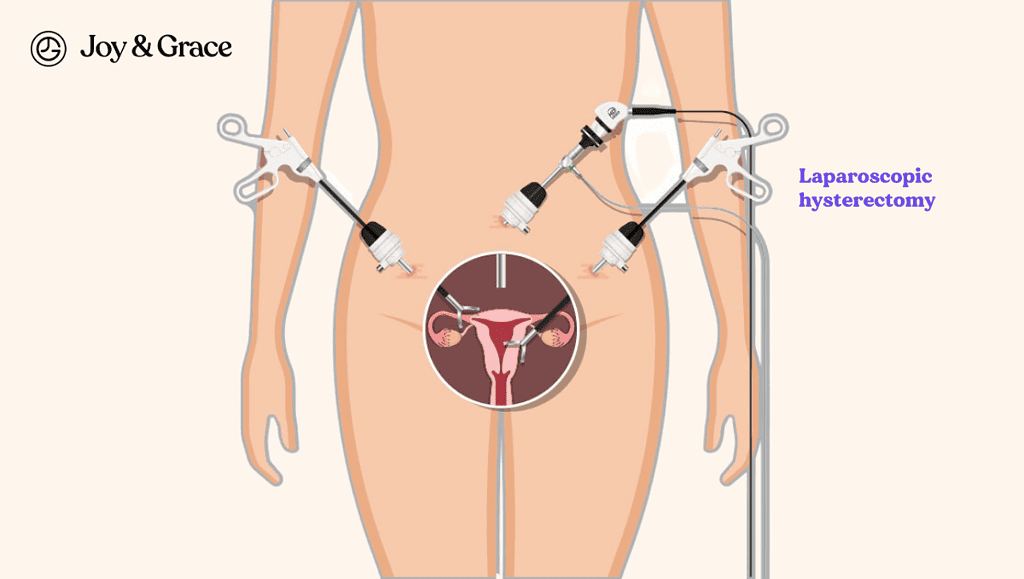
We understand how nerve-wracking it can be to experience shoulder pain after a hysterectomy. And you’re not alone. Even researchers know it can be the last thing on most patients’ minds when they think about a hysterectomy, making it even more distressing.
But the truth is that shoulder pain and hysterectomy have a complicated relationship. It turns out that shoulder pain is indeed common but only in one type of hysterectomy.
Before we dive right into the link between shoulder pain and hysterectomy, you need to know that there are generally three ways a hysterectomy is done. These are:
Shoulder pain is more common after laparoscopic hysterectomy and is rare in the other two types of hysterectomy.
A laparoscopic hysterectomy is a type of abdominal surgery that makes use of a small camera to remove your uterus. The surgeon makes a few small incisions in the abdominal wall and inserts the camera and instruments to perform the surgery. Gas is usually used to fill and expand your belly to make it easier to see the organs and move the tools around.
According to a study, the incidence of shoulder pain is as high as 80% in women who undergo laparoscopic gynecological procedures.
Why Is Shoulder Pain Common After Laparoscopic Hysterectomy?
So, why is shoulder pain common after laparoscopic surgery?
Well, most scholars believe it’s mainly due to the gas used during the surgery, which can stay in your belly even after the procedure. This can lead to some of the proposed mechanisms of shoulder pain after laparoscopic hysterectomy. However, some of them have stronger evidence behind them than others. These are the following:
- Carbonic acid
Carbon dioxide gas used during a laparoscopic hysterectomy can turn into carbonic acid. This causes the lining of your abdomen (peritoneum) to become more acidic, damaging or irritating the nerves of the diaphragm and resulting in referred shoulder pain. (We’ll also discuss “referred pain” just a bit later.)
However, according to researchers, this theory does not explain all cases of shoulder pain after a laparoscopic hysterectomy.
- Microvascular peritoneal hemorrhage
Microvascular peritoneal hemorrhages are tiny tears in the blood vessels in the pelvic area. They can occur when the peritoneum has to be stretched during a laparoscopic hysterectomy.
This can cause shoulder pain because the inflammation can spread to the tissues around it, sending the pain up to the shoulder.
These tears may be responsible for shoulder pain in cases where gas isn’t used or higher pressures are applied during a hysterectomy.
- Visceral ligament traction
Visceral ligament traction refers to the pulling or stretching of ligaments that connect your organs inside the abdomen (viscera comes from the Latin word “Viscus,” meaning “inner part of the body”). In this case, when gas is introduced into your belly, it can cause the ligaments that attach your organs to the diaphragm to stretch, leading to pain.
This theory is supported by several observations, such as:- The pain can be worsened or relieved by certain body positions
- The pain occurs when you’re sitting up or moving around
- The amount of remaining gas (residual carbon dioxide) is directly related to the severity of the pain.
- Nerve injury
The phrenic nerve is a nerve that goes through the diaphragm. The diaphragm is a muscle in your abdomen that helps you breathe, and, in normal cases, it doesn't stretch or damage any nerves.
However, the increased pressure from the gas could stretch your peritoneum (part of which also covers the diaphragm) and nerves, causing shoulder pain.
- Dehydration and damage to the peritoneum
Dehydration and damage to the peritoneum due to cold, dry gases can also cause pain. However, this has the least amount of evidence supporting it.
So you might be thinking, "What does all of this have to do with shoulder pain? We haven't even talked about shoulders!" Well, let us shed some light on this mystery. The shoulder pain from a laparoscopic hysterectomy is considered referred pain.
Remember the phrenic nerve we mentioned earlier? During its path from the brain to the diaphragm (as its main function is to power it), it also connects to a nerve responsible for providing sensation to the top of your shoulders. This nerve is called the supraclavicular nerve. Additionally, the peritoneum (lining of the abdomen) also covers and is closely related to a portion of your diaphragm, as we mentioned earlier.
Because of these connections, your brain might confuse pain from the diaphragm or peritoneum as pain from the shoulders.
Another reason for shoulder pain after a hysterectomy is your position during the surgery. During a gynecological laparoscopy, you’re put in a head-down or Trendelenburg position, and your arm is often moved out to the side.
According to a review, this position may cause the muscles and nerves of your shoulders to stretch, resulting in brachial plexus neuropathy, and, ultimately, shoulder pain.
Is It Normal to Have Shoulder Pain After Hysterectomy?
You might be wondering if shoulder pain after your hysterectomy is normal. The answer is yes. But we’d also say it’s considered normal, mainly after a laparoscopic hysterectomy. As mentioned earlier, shoulder pain is uncommon in other types of hysterectomy.
Still, if you're experiencing severe or persistent shoulder pain after a hysterectomy (regardless of the type), it may be a sign of a complication. It's important to contact your health care provider right away if you experience these symptoms.
When Does Shoulder Pain Start After Hysterectomy?
According to a 2016 study, shoulder pain gradually increases in severity, reaching its maximum 24 hours after a laparoscopic hysterectomy. This is similar to other laparoscopic surgeries, where postoperative shoulder pain typically appears 1 day after the surgery in 95% of patients.
This may be due to the remaining gas in your abdomen, which can stay in your body for more than 48 hours after surgery.
How Long Can Shoulder Pain Last After Laparoscopic Hysterectomy?
In one of the previous studies, which we’ve mentioned a few times until now, out of 50 patients undergoing laparoscopic hysterectomy, 90% of them reported shoulder pain during the first 72 hours. So, it’s plausible to conclude that shoulder pain from a laparoscopic hysterectomy can last at least up to 3 days after surgery.
However, it may last even longer. According to some other studies, shoulder pain from laparoscopic procedures can last a week or up to 5 weeks.
What Does Shoulder Pain From Hysterectomy Feel Like?
Shoulder pain from a hysterectomy can feel like:
- Dull, achy sensation in the shoulder blade
- Sharp, shooting, or a constant ache
- Worsened by movement
- It can travel to your neck or your arms
Is Right Shoulder Pain Normal After Laparoscopic Hysterectomy?
Although pain occurs on both shoulders after the procedure, it seems that the right shoulder may be more affected. In a study, patients reported more severe pain in the right shoulder than in the left.
What Can Help With My Shoulder Pain After Hysterectomy?
Dealing with pain after a hysterectomy can be frustrating and exhausting. Who knew a little gas could cause so much trouble? So, what helps with shoulder pain after a hysterectomy? Here are a few tips to try:
- Rest and Relaxation
Your body needs time to heal after surgery. Resting and taking it easy can help reduce inflammation and promote healing.
Avoid activities that put a strain on your shoulder or abdomen. Lifting heavy objects, for example, should be avoided until your doctor gives you the thumbs up.
One simple solution is to use a heating pad or hot water bottle on your shoulder. The heat can help soothe any strained muscles and relieve the pain. Alternatively, you could try using an ice pack or a bag of frozen peas; the cold can help reduce inflammation and numb the pain.
- Pain Medications
Over-the-counter pain drugs can help relieve pain and reduce inflammation. Your doctor may also prescribe stronger prescription medications if needed.
How Can I Prevent Shoulder Pain After Hysterectomy?
If you have an upcoming hysterectomy and want to be one step ahead of the game in preventing shoulder pain, here are some things you can do:
- Exercise
Establish a healthy exercise habit weeks or months before your procedure. Regular exercise before the procedure has been shown to reduce the severity of shoulder pain.
- Aim to keep your weight within a healthy range for your body type
A lower BMI might be a risk factor. According to a study, shoulder pain after laparoscopic procedures was more common and severe in patients with a lower BMI.
Takeaway
Remember, postoperative pain after a hysterectomy is a common occurrence. The pain can vary in intensity and sensation but is usually a dull, achy feeling in the shoulder blade.
But it's not something you have to suffer through alone. Remember to take it easy, be patient, and give yourself time to heal. With the right care, you can manage your post-hysterectomy pain and get back to feeling like yourself again.







